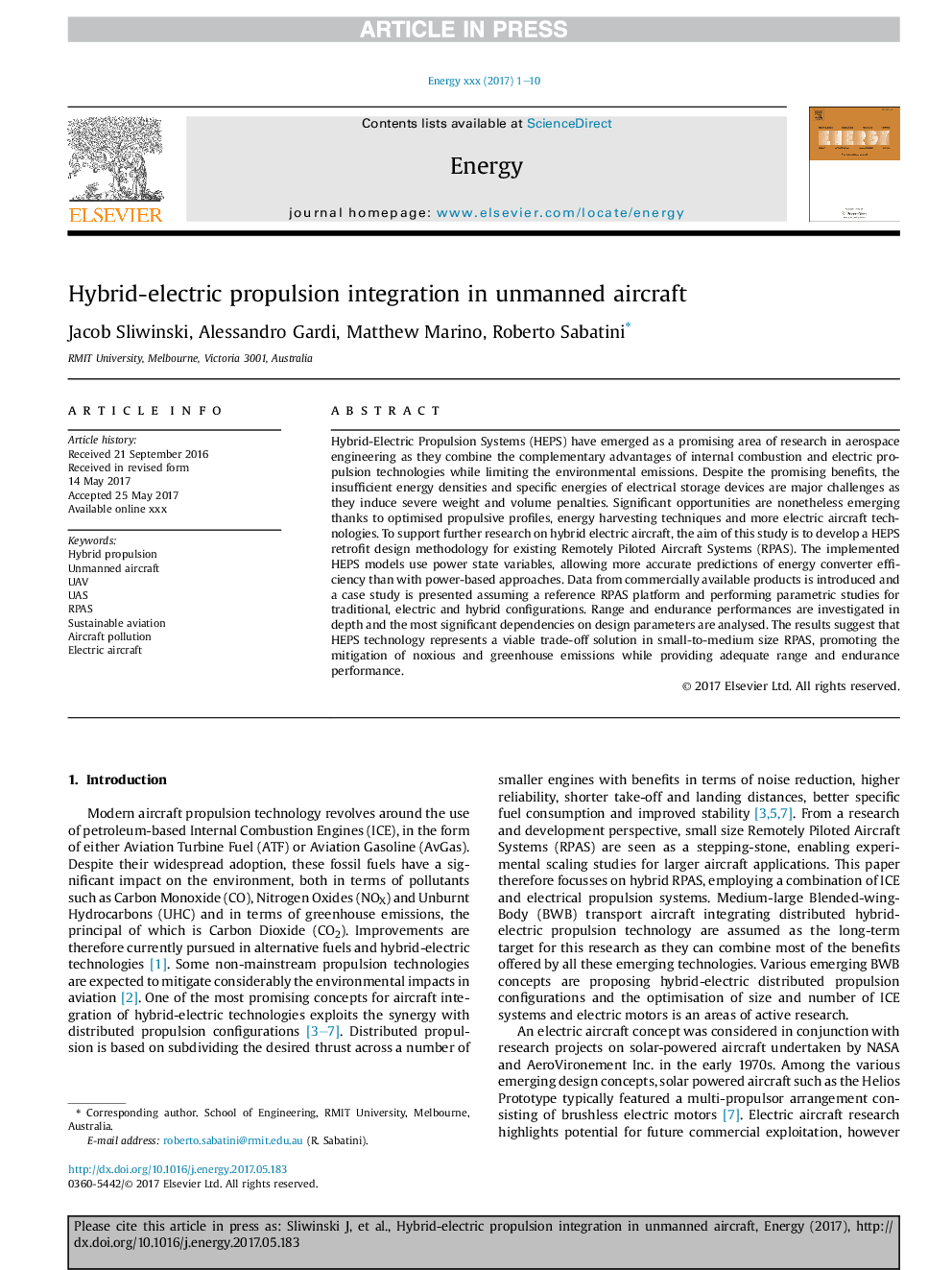| Article ID | Journal | Published Year | Pages | File Type |
|---|---|---|---|---|
| 8072608 | Energy | 2017 | 10 Pages |
Abstract
Hybrid-Electric Propulsion Systems (HEPS) have emerged as a promising area of research in aerospace engineering as they combine the complementary advantages of internal combustion and electric propulsion technologies while limiting the environmental emissions. Despite the promising benefits, the insufficient energy densities and specific energies of electrical storage devices are major challenges as they induce severe weight and volume penalties. Significant opportunities are nonetheless emerging thanks to optimised propulsive profiles, energy harvesting techniques and more electric aircraft technologies. To support further research on hybrid electric aircraft, the aim of this study is to develop a HEPS retrofit design methodology for existing Remotely Piloted Aircraft Systems (RPAS). The implemented HEPS models use power state variables, allowing more accurate predictions of energy converter efficiency than with power-based approaches. Data from commercially available products is introduced and a case study is presented assuming a reference RPAS platform and performing parametric studies for traditional, electric and hybrid configurations. Range and endurance performances are investigated in depth and the most significant dependencies on design parameters are analysed. The results suggest that HEPS technology represents a viable trade-off solution in small-to-medium size RPAS, promoting the mitigation of noxious and greenhouse emissions while providing adequate range and endurance performance.
Related Topics
Physical Sciences and Engineering
Energy
Energy (General)
Authors
Jacob Sliwinski, Alessandro Gardi, Matthew Marino, Roberto Sabatini,
